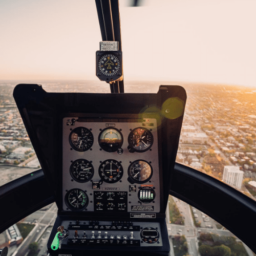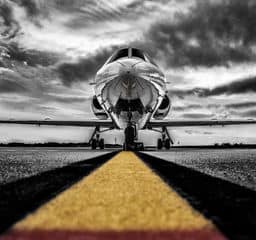The Ultimate Guide to Becoming a Pilot In south africa
Have you always dreamed of becoming a pilot? Becoming a pilot requires passion, hard work and dedication—most of which comes naturally to those who decide to pursue aviation as a career. You may already know that this is your calling, but you might be wondering how to become a pilot and where to start.
We understand how intimidating and confusing it can be and that’s why we’ve decided to break it down for you.
How old do I need to be to start training to become a pilot?
You can start studying to become a pilot from the age of 15. Although, most flying schools require South African students to be 16 years or older and foreign students to be 18 years or older.
Can I become a pilot if I don’t have 20/20 vision?
Most people think that pilots need 20/20 vision. However, this is not the case. Pilots are allowed to use corrective lenses as long as they carry a spare pair of suitable corrective lenses on all flights.
Do I need to have Physics as a subject in matric to study to become a pilot?
No. In fact, it is not even a requirement to have a matric to study to become a pilot. However, it is a requirement in many Cadette and Scholarship programs as well as some flying schools to have a matric and/or Physics.
So, how do I become a pilot?
Step 1: Choose and Enrol in a Flying School
Choose and enrol in a flying school. See this list of approved ATO’s (flying schools).
Step 2: Apply for a Student Pilot License
Once you have registered with an ATO, your flying school will assist you in applying for an SPL (Student Pilot License).
Requirements to apply for an SPL:
- age 15 years or older
- original or certified proof of the identity of the applicant
- a valid Class 1 or Class 2 medical certificate
Step 3: Get a Private Pilot License
Once you get your SPL, you can commence training towards your first pilot license which is called a PPL (Private Pilot License).
Your school will assign a Grade 3 flight instructor to you. Your flight instructor will take you through several flight training exercises including learning how to fly, land, navigate, handle emergencies and much more.
During this time, you will also be required to pass 7 theoretical exams:
- Principles of Flight
- Aircraft Technical and General
- Meteorology
- Human Performance
- Navigation
- Air Law
- Restricted Radio
Once you have completed all the necessary flight exercises and passed the required theoretical exams, you will be required to do a skills test with a Grade 2 instructor or DFE.
Step 4: Get a Commercial Pilot License
Once you have obtained your PPL license, you can start working towards your Commercial Pilot License.
Below is a basic overview of the requirements for obtaining a Commercial Pilot License:
Hour Requirements
You will need 200 hours of total flight time*:
PIC (pilot in command) time:
- 100 as PIC of an aircraft
- 5 hours as PIC at night
- 20 hours cross country as PIC
Dual instruction:
- 20 hours of instrument instruction time
- 5 hours of instruction in a complex aircraft
*Note: The hours that you flew when you were training for your PPL are included in the 200 total hours required for your CPL.
Ratings, Medical and Additional Licenses
- You need to get a Night Rating
- You need to get a General Radio License
- You need a class 1 medical certificate. We recommend that you only get a class 1 medical when you are ready to apply for your CPL.
Theoretical Exams
You will be required to pass 8 theoretical exams:
- Aircraft Technical and General (includes Principles of Flight)
- Meteorology
- Human Performance
- General Navigation
- Instruments
- Radio Aids
- Air Law
- General Radio
Once you have completed your Commercial Pilot License, you can pursue an Airline Transport Pilot License.



